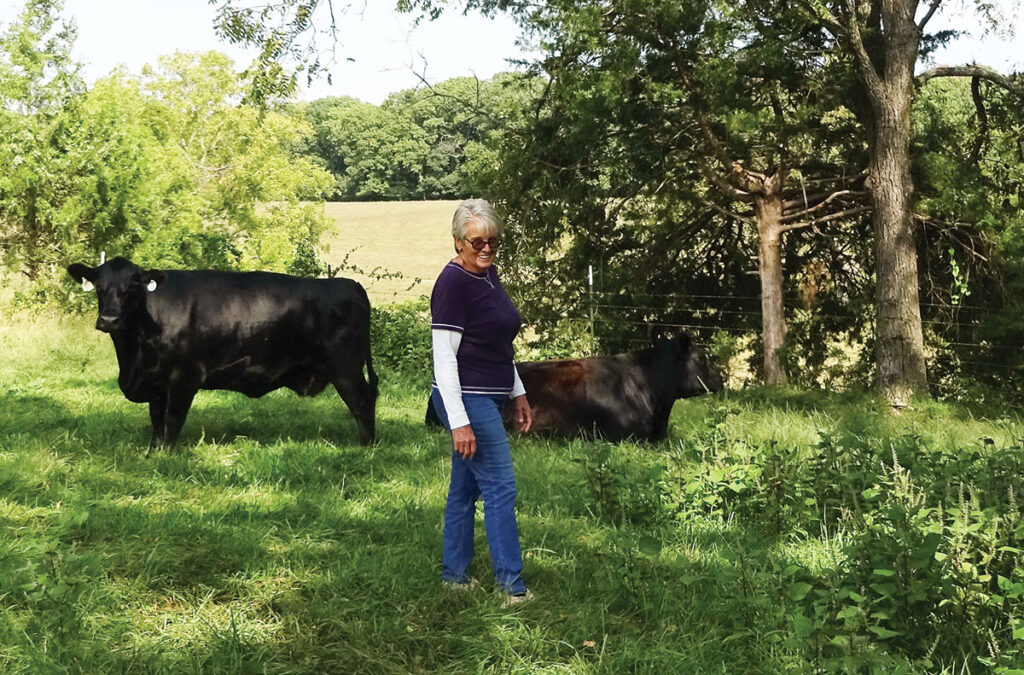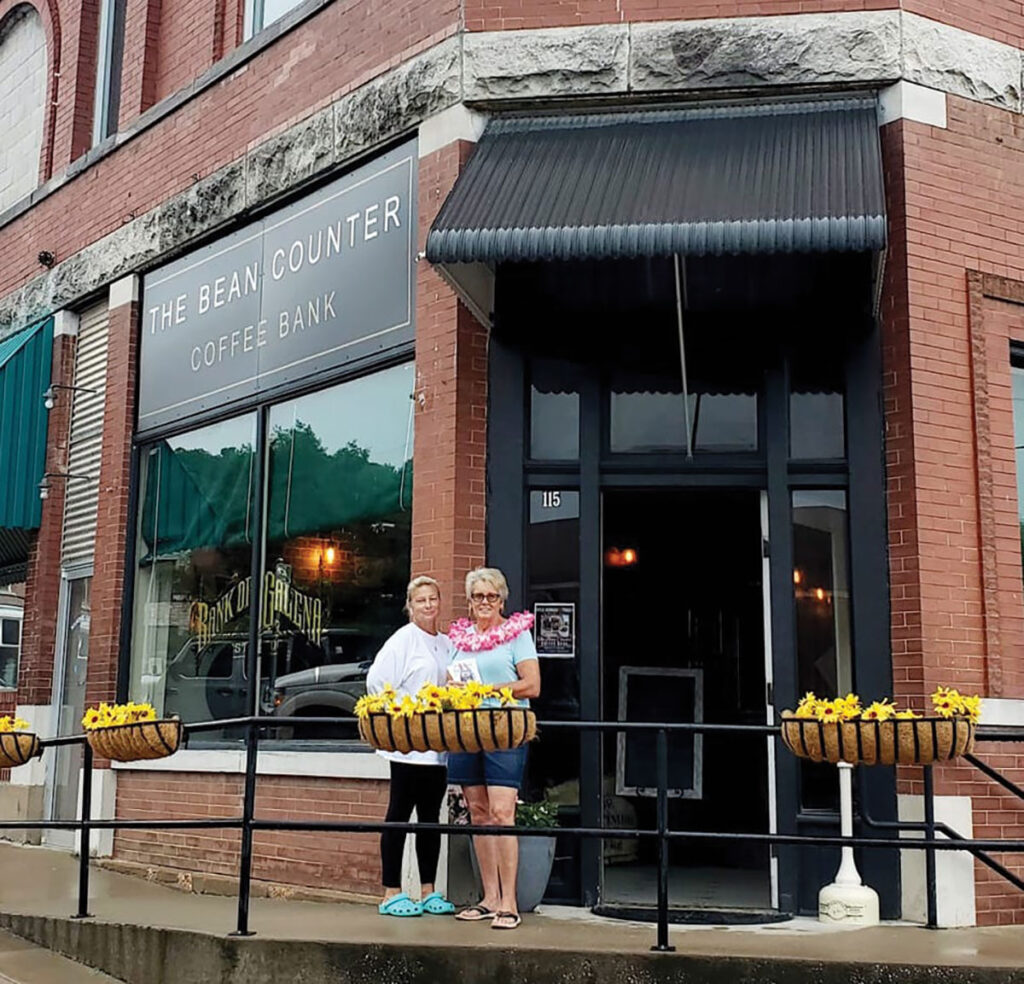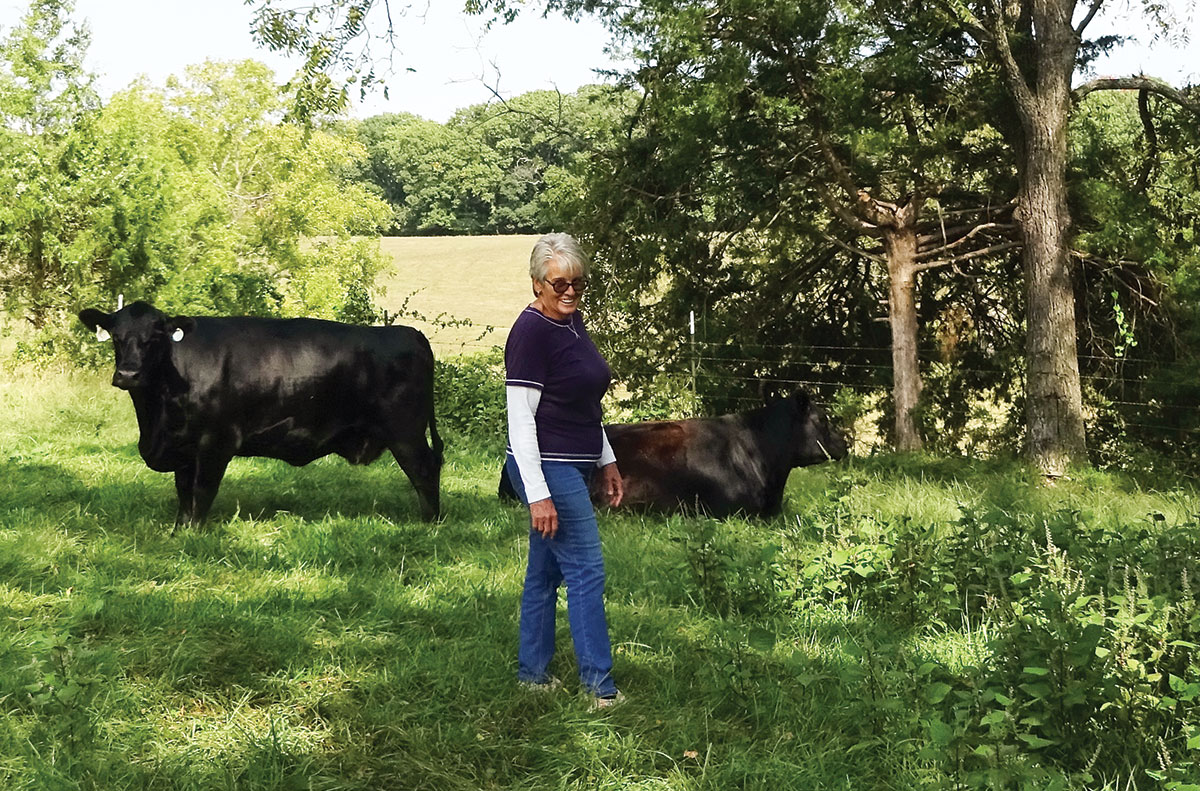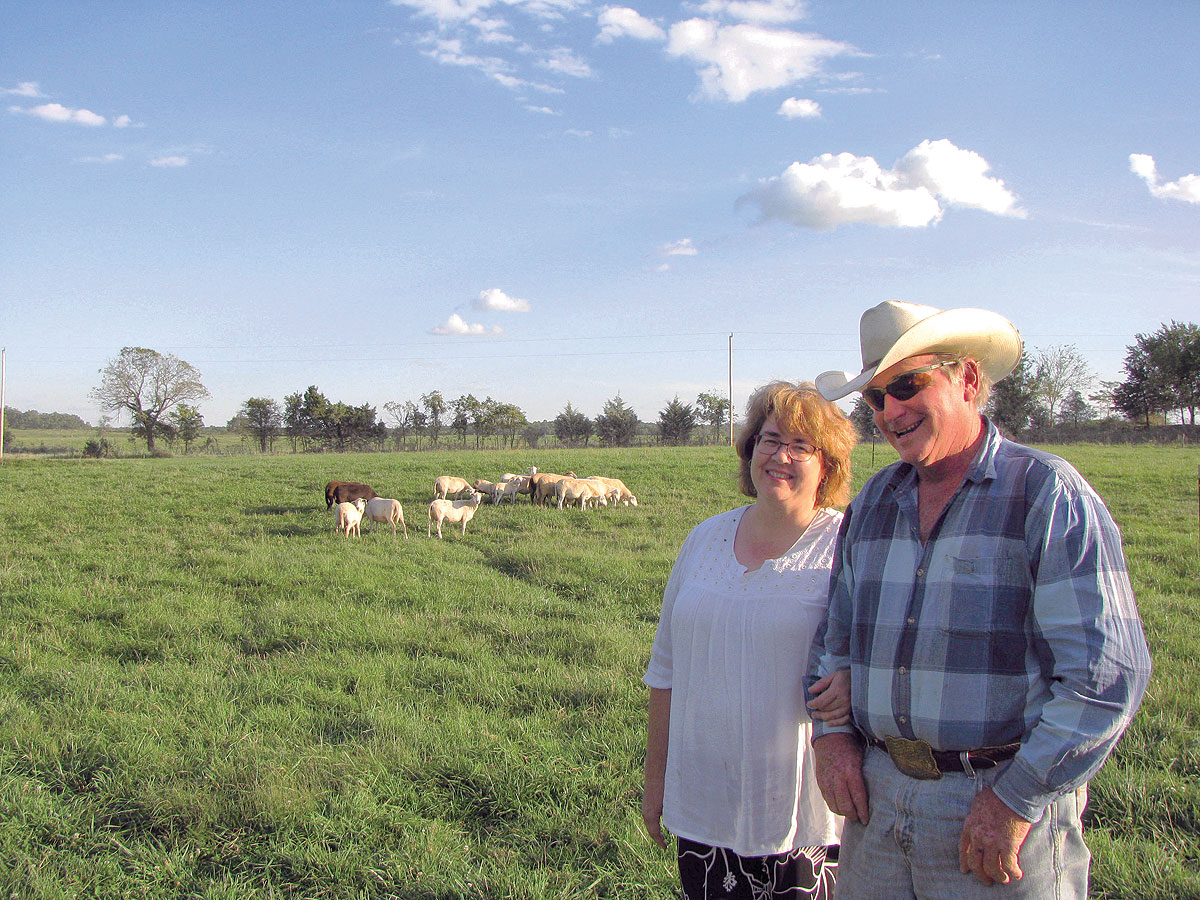
Deana Oliver says the best beef comes from the best genetics
REEDS SPRING, MO. – For the owner of Molly Moo Farm in Reeds Spring, Mo., the key to developing a herd of registered black Angus cattle from which you can get the “best beef” is all in the genetics.
Deana Oliver came to raise black Angus circuitously. Oliver was born in Texas, but her family eventually moved to California. When she was a freshman in high school, they moved to Malta, Idaho. Deana’s father worked as the manager of 37,000 acres of land, grazing horses and cattle. Her family later returned to California when Deana eventually became a licensed agent. She sold real estate in the Clovis, Calif., area for 25 years.
But, by the early 2000s, Deana was ready for a change of scene. She visited her sister, who lived in the Ozarks, in 2002. Deana liked the area so much she decided to buy some property and moved to Missouri.
Initially, Deana owned a house near Table Rock Lake. But she wasn’t a boater and didn’t fish. Oliver’s passion and principal occupation is real estate, so when the 25 acres with a house came up for sale, she decided to buy it and sell her lake home.
“I love selling real estate, and I love my cattle,” Deana said.
The Molly Moo herd started with a primarily black but mixed herd of 22 cattle. Her new neighbor with whom she made fast friends, Dr. Richard Blubaugh, suggested she could end up with a higher quality herd by focusing her energies and resources on raising registered black Angus. Dr. Blubaugh was familiar with registered Angus, being from the sixth generation Blubaugh Angus Ranch in Tonkawa, Okla. Deana decided to take his suggestion and began developing her registered herd principally using bulls from the Blubaugh Angus Ranch.
Now it’s standard practice at Molly Moo Farm to continually introduce more registered black Angus genetics. Whether buying new cattle, covering her heifers with Blubaugh bulls whenever appropriate, or through AI utilizing bloodlines of outstanding operations like the Schaff Angus Valley ranch in St. Anthony, North Dakota, better and better herd genetics is the Molly Moo Farm focus.
“You pay a little more,” Deana noted, “but when you get those nice heifers out of those mommas you get more for them than you do the grade cattle.”
Oliver took 12 bull calves to sale earlier this year and sold them immediately for what she described as very good prices.
Molly Moo harvests animals on average when they get to between 1,100 and 1,400 pounds.
“We don’t sell them by the pound,” Deana explained. Molly Moo Farm sells fully processed beef by the quarter, half and wholes.
“We don’t advertise or anything, it’s just all word-of-mouth,” Deana said, adding because of the combination of her many real estate contacts and the network of people Dr. Blubaugh has they currently have no need to pay to advertise their beef.
Additionally, Deana and her daughter, D.J. Wells, are co-owners of The Bean Counter Coffee Bank in Galena, Mo. When they have product available they put up a sign in the coffee shop letting patrons know that the Molly Moo and Blubaugh farms have product to sell.
In 2022, what Deana referred to as the “Blu-Moo” collaboration sold 23 fully processed beefs.

Deana Oliver, right, owns Molly Moo Farm near Reeds Spring, Mo., where she produces Angus seedstock and sells beef. She and her daughter D.J. Wells, left, also own The Bean Counter Coffee Bank in Galena, where they offer farm-raised beef to customers. Contributed Photo
Deana said they use Legacy Meats in Verona to process their animals, where they hang for 21 cays before being cut.
“We have a waiting list,” Deana said.
Molly Moo Farm calves in the spring and in fall.
“We don’t like to calve in the dead of summer, and certainly not in January and February,” Deana said emphatically. “And I didn’t always do that.”
Prior to turning her focus to developing a registered herd, their bull ran with the herd all time and mommas birthed year round.
Molly Moo Farm consists of a primary site with 120 acres in both pasture and wooded land, a 25-acre parcel where her home is located, in addition to being used for a new heifer or weaned bull pasture, and an 18-acre hay field with an adjacent leased 22 acres.
“So it’s a 40 acre field,’ Deana said.
In 2023, they will get two cuttings from their combination orchard grass and clover hayfields. As of the end of September they had put up more 300 4-by-5 round bales. Additionally, in May and again in September, they were invited to take hay from a neighbor’s fescue field as well and they got 64 bales from that cutting.
So as opposed to previous years, Deana does not expect to buy any hay this winter. Planning ahead, Molly Moo recently rented a no till planter from Stone County Soil and Water to spread Cold-Grazer rye grain for winter pasturing in the 40-acre plot.
They are running water lines out to the soon-to-be fifth separately fenced pasture on the primary 120 acres. The land is currently divided into four pastures but with their plans to cross fence one field into two this winter there would only be a pond available in the one area and Deana wants to ensure they have quality fresh water when cattle are there.
The Molly Moo operation does not introduce hormones of any kind and only gives antibiotics to animals that become ill. Oliver said that they do supplement their rotational grazing protocols with grain they get in bulk from Rocking W Farm Supply in Crane, Mo. Their grain mixture includes essential minerals which precludes Molly Moo hands from having to manage mineral feeders. Molly Moo staff puts out grain every other day throughout the year and sometimes every day depending on the weather during more the winter months.
Deana is very proud of her 3-year-old cow that came from the highly regarded bull, Ellingson Homestead. Calved in 2016, Ellingson Homestead is a balanced trait sire with 10 traits in the top 15 percent of desirable characteristics and his daughters are known to be easy fleshing brood cows with great stature.
“Genetics is everything,” said Oliver.







